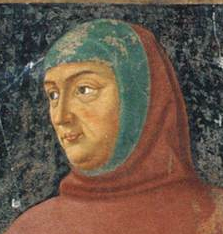 The year is 1791, the place is revolutionary France and the class is CAS 101, Reacting to the Past.
The year is 1791, the place is revolutionary France and the class is CAS 101, Reacting to the Past.
Taught by Alexander Dracobly, senior instructor in history, Reacting to the Past (RTTP) incorporates an elaborate, immersive interactive game—the first of its kind at the UO—as students role-play the tumultuous events of the French Revolution, in particular the struggles of the newly convened National Assembly to adopt a constitution.
 On a recent afternoon, the students were in character: King Louis XVI adjusted “her” crown and then, with a regal flick of her wrist, silenced her cell phone. Her gaze fell upon the sea of young faces in the National Assembly: a minister wearing a silver cross, proud supporters of Her Royal Highness clad in white, radical Jacobins draped with red scarves (right).
On a recent afternoon, the students were in character: King Louis XVI adjusted “her” crown and then, with a regal flick of her wrist, silenced her cell phone. Her gaze fell upon the sea of young faces in the National Assembly: a minister wearing a silver cross, proud supporters of Her Royal Highness clad in white, radical Jacobins draped with red scarves (right).
The game, which has no fixed script or outcome, forces students to apply abstract thought to real-world issues. For example, students in this particular unit of RTTP deal with the various challenges—political, philosophical, social and so on—involved in trying to create a constitutional monarchy when the monarch himself appears to be treasonous.
“The students are really diving into their roles,” said Dracobly, adding that the game sometimes requires students to make impromptu decisions that could have major repercussions on the ongoing narrative. “At one point, our Lafayette refused to use the National Guard to put down a crowd,” an unscripted historical deviation (i.e., one that does not match actual events) that led to a strengthening of the Jacobins’ ranks.
Students became so immersed in the game, in fact, that Dracobly even held a “peace and reconciliation” banquet at the end of the term to ease the tensions between factions. All parties—from the king to the most destitute peasant—dined amicably together on spaghetti and meatballs.
To prepare for their four-week-long game—entitled “Rousseau, Burke, and Revolution in France, 1791”—students read and discussed classic texts by political philosophers Jean-Jacques Rousseau and Edmund Burke, as well as works by Voltaire and articles from Diderot’s Encyclopedia, and learned about the significant people, places and events that shaped the French Revolution. Once the game started, students were encouraged to cite the texts they had studied, either to support their own character’s viewpoint or to attack an opponent’s argument.
“The class forces them to consider positions they may not personally agree with and to assume roles for which they may not have a natural affinity,” said Dracobly, who from time to time would roll dice to determine the outcome of spontaneous events such as a mob uprising. “It can help students become more sensitive to others’ positions and to listen to them instead of rejecting their arguments out of hand.”
Each class period begins with the distribution of a news bulletin informing students of events that transpired in France since the Assembly’s last session, as well as copies of the newspaper each faction produces each week. Students’ actions each day—speeches, debates, strategy meetings, backroom deals—are to be informed by these events. At the start of one class period, for instance, students learned that religious riots had broken out in the Vendée, west of Paris, and that slave uprisings had turned increasingly violent in the West Indies.
Students control the events in RTTP, so the game’s outcome may differ considerably from the historical record. Because of this potential for factually inaccurate developments, the class spent two days at the end of the term discussing what really happened in the aftermath of the French Revolution, so that students wouldn’t walk away from the class erroneously thinking, for instance, that Louis XVI persuaded the revolutionaries to abandon their democratic ideals and enjoyed a long, illustrious, guillotine-free reign.
In RTTP, which was founded by Professor Mark Carnes at New York’s Barnard College in 1996, the instructor provides guidance and assesses oral and written work, the quality of which can affect the game’s outcome. For example, one student’s fiery extemporaneous speech inspired peasants to revolt and, following a series of dice rolls by Dracobly, temporarily drove Lafayette out of France.
RTTP is made available through the CAS College Scholars Program, which offered a second RTTP course last winter: “America’s Founding: The Constitutional Convention.” This spring, College Scholars will offer two more: “Defining a Nation: India on the Eve of Independence, 1945” and “Red Clay 1835: Cherokee Removal.”
— Eric Tucker
photo by Jack Liu




 A new course will provide UO students with mobile smart phones and a mission: to build smart-phone apps.
A new course will provide UO students with mobile smart phones and a mission: to build smart-phone apps.
 Two CAS faculty members have been honored with the 2011 UO MLK Award.
Two CAS faculty members have been honored with the 2011 UO MLK Award. Petrarch is not only going digital at the UO, but musical as well.
Petrarch is not only going digital at the UO, but musical as well.